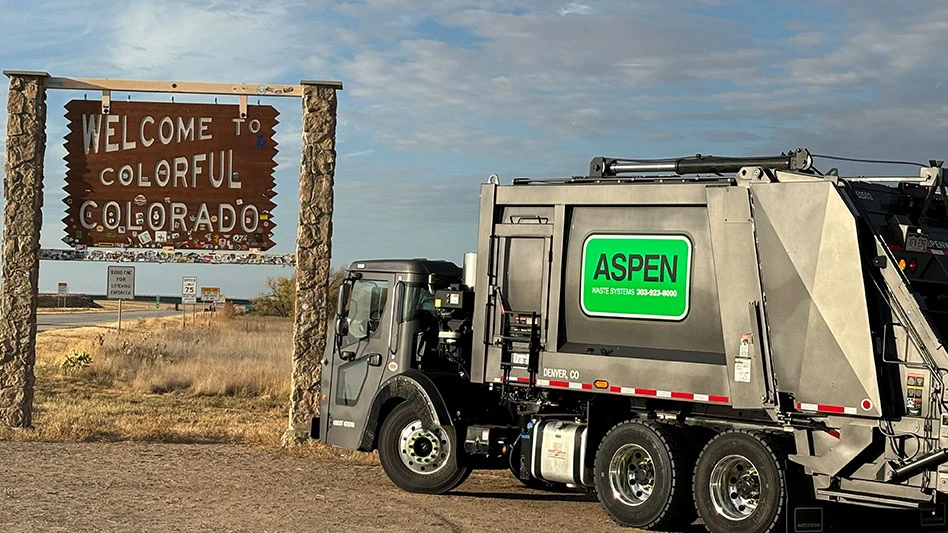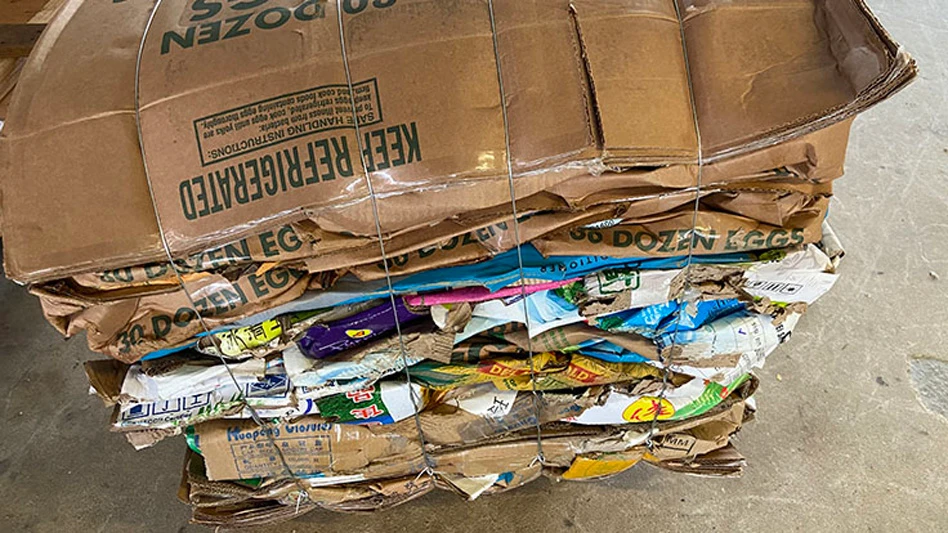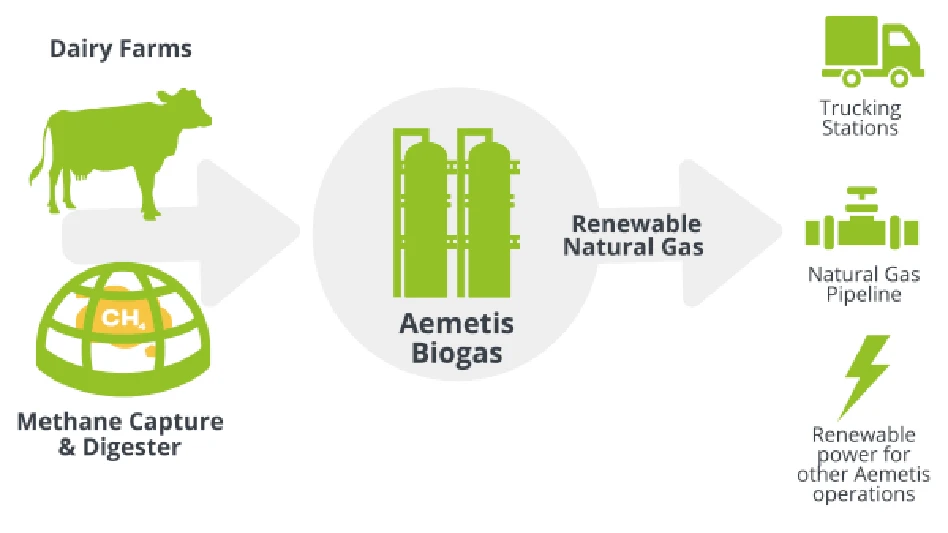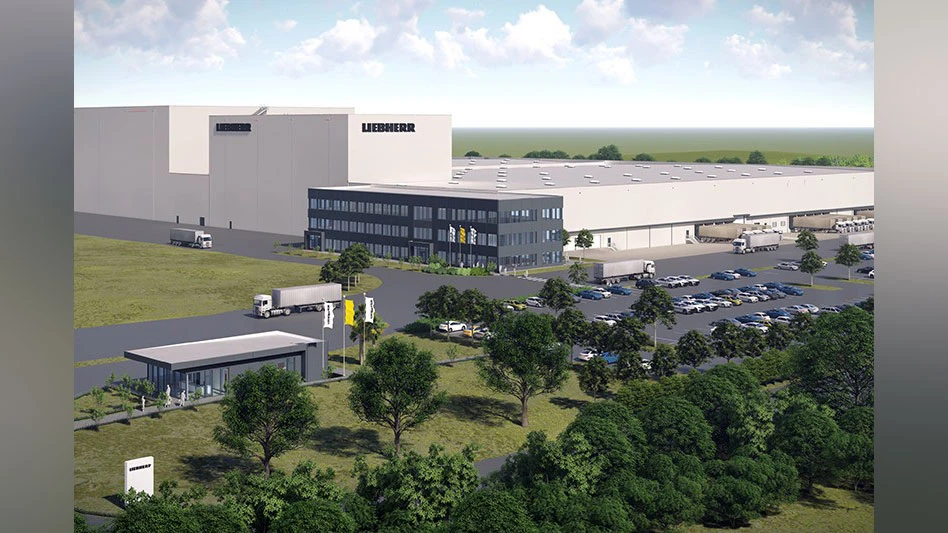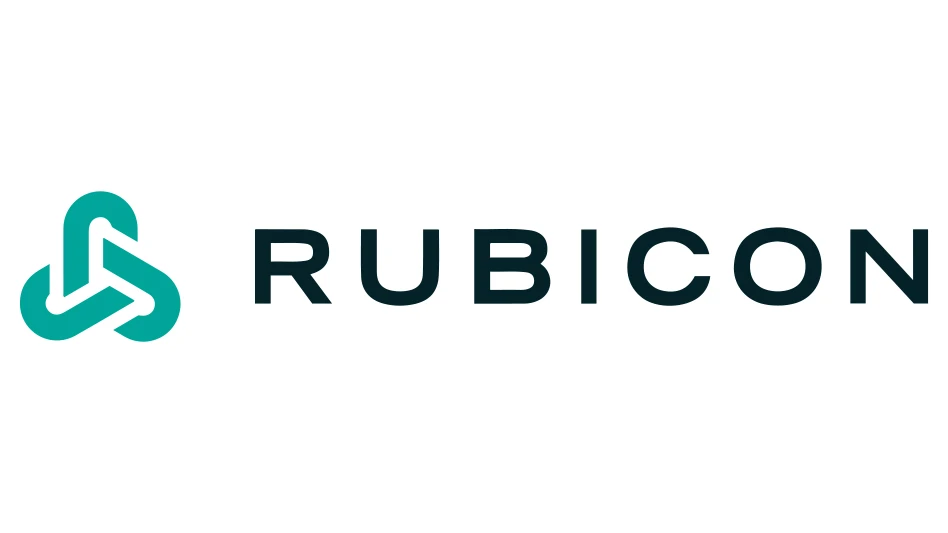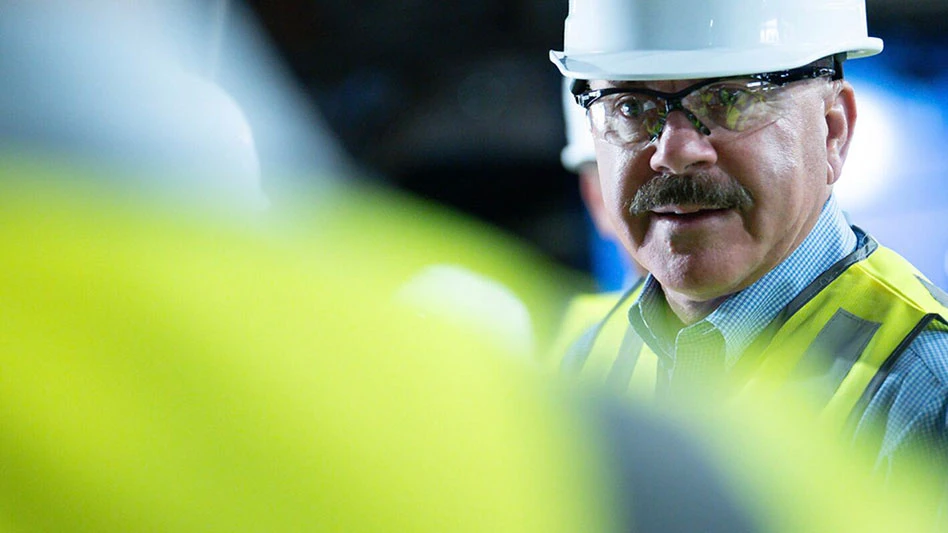
Photo courtesy of National Waste & Recycling Association
In his first 100 days on the job as president and CEO of National Waste & Recycling Association (NWRA), an Arlington, Virginia-based organization championing the waste and recycling industry, Michael E. Hoffman has traveled the country visiting NWRA chapters and waste industry vendors. As part of those travels, he’s been in and out of landfills and material recovery facilities, he’s gotten to operate every piece of construction equipment on the Volvo CE lot, he’s driven the Volterra, McNeilus’ electric refuse vehicle, and much more.
“I love kicking tires and seeing the operations and getting the story out,” Hoffman says. Waste Today spoke with Hoffman about his first three months on the job.
Waste Today (WT): When you were brought on at NWRA, you described an “unprecedented opportunity to bring heightened focus to advocacy and safety for the environmental services industry.” How are you working toward those objectives in your role?
Michael E. Hoffman (MEH): I think we’ve played a lot of defense over the last 10 or 12 years, and we need to shift into a mixture of defense and offense. You’re never going to have no defense, because you'll have something happen at a committee level that comes out of left field and you have to react to it, and that's defense, but being proactive is trying to figure out where the puck's going and getting in front of that.
You'll see changes that have been made in the association. In this first 100 days, we've added a senior vice president of communications. We've raised the bar on our communications effort, and we are going to take a far more proactive role in the messaging that comes out of the industry.
A part of that will be educational. That education runs the gamut from, does the public actually understand what happens with their trash, other than saying they roll it to the end of their driveway? Gaining an appreciation of that helps them then better understand, what are we doing with it? A surprising percentage of the public doesn't believe we really recycle—and yet we really do.
Then getting into the more complicated [issues, such as] how do we get batteries out of the postconsumer collection stream, and why is that important to do that? What's the right type of recycling in the context of your bin, where we maximize the real reuse so we help in succeeding in driving a circular economy and raising the recovery rate of materials we capture that can be reused?
WT: In the news release announcing your hiring, NWRA trustee Tony Romano emphasized that the association values the importance of telling the story of the essential services provided by member companies. What are some of the stories you’re most interested in telling?
MEH: A favorite story of mine to tell is, on the 12th of March 2020, we all got told to go home. There's only one industry that went to work. One hundred percent of the employees went to work on March 13, and did so every day after that. That was the waste industry.
It wasn't just solid waste, it was industrial. It was hazardous, medical. It was C&D, because if the economy is working, it's producing a residual, right? Whether it's postconsumer, whether it's manufacturing, industrial, whether it’s construction-related, whether it's healthcare-related, it's producing a residual that’s got to get collected every day.
We showed up every day. Let’s get the public to better appreciate what do we do.
WT: What has been the most surprising thing you’ve encountered in making the switch from financial analysis to the membership-based nonprofit world?
MEH: It’s awareness. Sitting in my position for 38 years in Wall Street, I wouldn't necessarily be as intimately plugged into the some of the day to day at the individual customer level. So the public perception issues, some of them I was aware of. Some of them, like the evidence of the public's lack of confidence [in recycling, I was not].
It's constantly telling a story. Now I just shift the type of narrative I’m discussing. I’m getting in front of and owning the dialog and owning the narrative.
I think I was successful in Wall Street for a lot of reasons, but one of them is I worked tirelessly at understanding how the business model worked. I could communicate that to the investors, so that they understood why these were great investments, why they were such good compounders, year in and year out, and therefore should be core holdings.
I bring that communication skill, we have a narrative we need to own, and we haven't consistently done that. So that's the fun, interesting, exciting opportunity.
WT: What has your day-to-day looked like since starting the position as executive director at NWRA?
MEH: We have 27 chapters, which have not been visited by headquarters consistently for probably a decade. And so I want to get out and be the face of the association to that membership, to help begin to convey the change in behavior around communications and messaging and raise the profile and reemphasize the importance and urgency of advocacy.
So, I've done a lot of traveling. I started on the 10th, and I was on an airplane on the evening of the 10th, and I've been on the road virtually every week since. There's a lot of getting out and starting that dialog of, “Your association is going to be more visible. You're going to see and feel and have our presence but, more importantly, we are there to be that voice for you.”
When it makes sense for us to be the point of communication versus an individual company— little or big, doesn't matter— we're prepared to do that. We're prepared to talk to a regulator or a politician, we're prepared to get behind the scenes and help convey those messages, because I think that's going to be an important part of us changing.
WT: What message about the association would you like to communicate to operators who are not members or have fallen away from the association over the years?
MEH: We are, first and foremost, an advocacy group that represents everybody, but sometimes the outsiders will look in or, you know, smaller haulers are going, “well, that's the big hauler association.”
The first message is [that] everybody has one vote. Doesn't really matter whether you’re big or you’re little, you have one vote, and therefore you have influence.
Second, I need your voice—and you want me to need your voice because there's a greater probability that a regulator and a policymaker will listen to the local owner-operator. …
The other thing is the networking that happens. I've been going to these meetings for NWRA for over 30 years. There's a social aspect of it. People are having a conversation. You start hearing about an operating challenge, and somebody else says, “Oh, we dealt with this in this manner.” And then you're back again a year later at the same event, and you hear the follow-up conversation of, “it worked. That was a great idea.” That part of the industry, that's so cool.
WT: Where do you see NWRA’s focus when it comes to advocacy around policy and legislation in the next few years?
MEH: At the local and state level, this has a lot to do with packaging EPR (extended producer responsibility), battery EPR … and legislation that enforces the importance of not being a distracted driver.
On packaging EPR, our objective is to start with, why do you want to do it? And if the answer is, we want to increase the rate of recycling access by our state citizens residents, our pushback is, in most places that are seeking to do this, you already have very high participation. … You're not changing those numbers with EPR. What you are absolutely doing is driving the cost up dramatically, 2 or 3X and no real material change in volume collected.
The other part of advocacy is, we have a fair amount of shrinkage of recoverable items outside of the postconsumer collection infrastructure. … How much of postconsumer recyclable materials is lost in a trash receptacle in a public setting, so it never gets access to the recycling infrastructure? Could we change those recovery rates?
At the federal level, most of what we're focused on has to do with postcollection infrastructure, and it's dealing with CERCLA [Comprehensive Environmental Response, Compensation and Liability Act] PFAS designation, it's dealing with greenhouse gas emissions and how those are truly measured.
We're more than happy to abide by and address rulemaking changes, but let's make sure we’ve thought those through.
Latest from Waste Today
- Capital Waste acquires Tennessee Waste Haulers
- Van Dyk partners with Reckelberg Environmental Technologies
- CRI submits comments to CalRecycle on CRV handling payments
- Reworld acquires EnviroVac Waste Transport
- Waga Energy partners on RNG project at France landfill
- Hawaiian county selects landfill site
- CAA submits final draft program plan in Oregon
- Washington city adds organics collection to waste service
